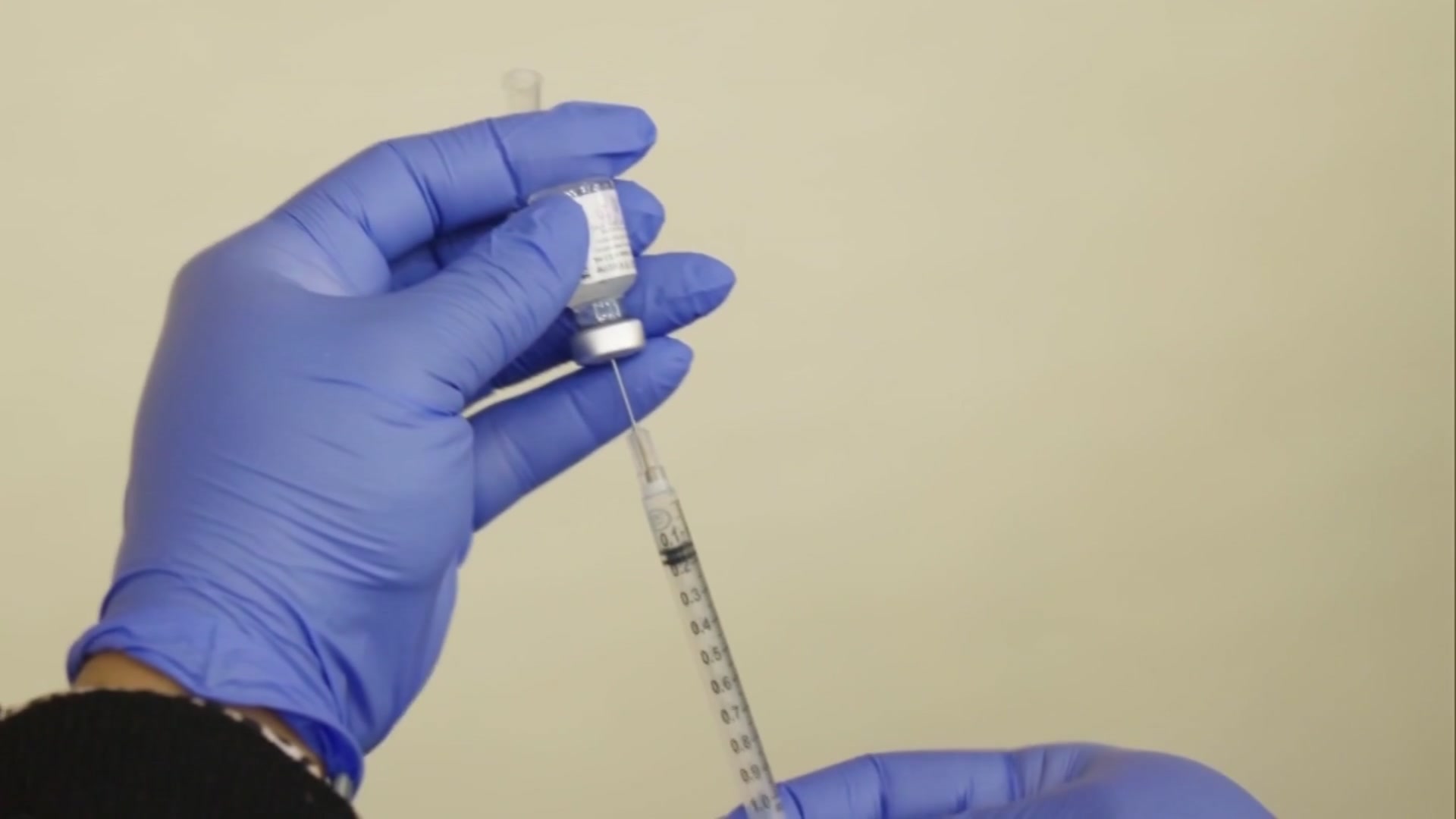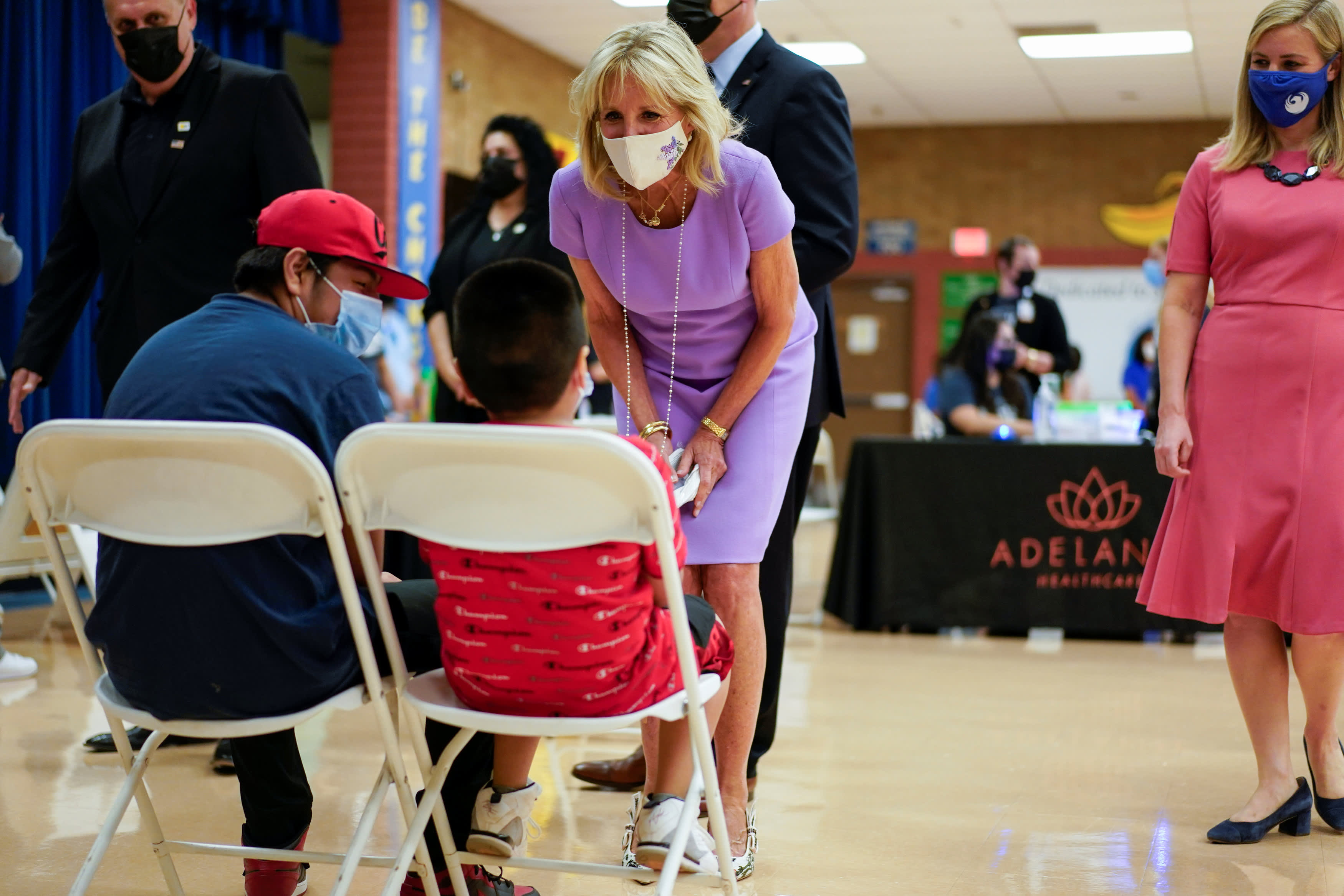As the omicron variant spreads rapidly across the U.S., health officials contend getting a booster shot and the COVID-19 vaccine are crucial in curbing the spread of the virus, but wearing a face mask is also strongly recommended.
On Friday, the Centers for Disease Control updated masking guidance, saying N95 and KN95 masks offer the best protection against COVID-19 and people "may choose" to wear them.
Previously, the CDC didn't recommend that the general population wear N95 masks or KN95s, a similar type of mask made in China, fearing that demand would impact the supply in health care settings.
In its update Friday, the CDC said shortages were no longer a concern.
Feeling out of the loop? We'll catch you up on the Chicago news you need to know. Sign up for the weekly Chicago Catch-Up newsletter here.
Some public health experts say the guidance is long overdue and doesn't go far enough.
How can you tell if a KN95 mask is legitimate? Here's how the CDC says you can spot the difference.
"We really need to go a step further and say this is the standard we should be aiming for," Dr. Ranu Dhillon, a global health physician at the Harvard Medical School and Brigham and Women's Hospital, told NBC News.
"CDC should have come out in front of this two years ago," he added. "The science was clear two years ago."
Speaking last week, Dr. Allison Arwady, the commissioner of the Chicago Department of Public Health, stressed that "everybody wearing a mask is the most important thing."
"The biggest jump in protection is from no mask to any mask," she said during a question-and-answer session.
Arwady at the time said KN95 masks are "good to use" when available, she said, but signified the importance of overall mask use.
"As long as it feels comfortable for you to have one of these on, wear one," she said. "It's got a higher protection level."
KN95 masks, as well as N95s, filter out at least 95% of air particles, but N95 masks have stricter pressure drop requirements and are regularly considered the "gold standard" for masking.
N95s are specifically reserved for health care workers, and originally were only recommended in such settings.
According to an article from Nebraska Medicine, mask materials that have high filtering efficiency in theory work best in combating the omicron surge, but fit is especially important.
Several studies have found that a multi-layer cloth mask can have effective filtration efficiency that is just as high as KN95s or other high-filtration masks, according to the article.
The CDC said in its updated guidance that it "continues to recommend that you wear the most protective mask you can that fits well and that you will wear consistently."
A mask should fit close to the face without any gaps, and be comfortable enough to wear for long periods of time when needed, it said.
The agency did, however, offer a ranking of commonly used face coverings in order of highest to lowest protection, with N95s approved by the National Institute for Occupational Safety & Health and KN95s at the top.
Disposable surgical masks were next on the list, however the CDC advised making sure they fit properly. Loosely woven cloth products provide the least protection, according to agency officials.




